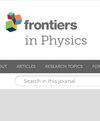Automated size-specific dosimetry for chest posterior–anterior projection radiography
IF 1.9
3区 物理与天体物理
Q2 PHYSICS, MULTIDISCIPLINARY
引用次数: 0
Abstract
IntroductionChest radiography is a frequently performed examination, and therefore, accurate patient dosimetry is important. One means of increasing dosimetric accuracy is through the use of size-specific dosimetry, and the aim of this work was to determine which patients would benefit from such a methodology applied in chest posterior–anterior (PA) projection radiography.MethodsA database of 44 voxel models was created from CT scans, representing adults with BMI from underweight, normal, overweight, and obese classes. Monte Carlo simulation was performed to generate dose conversion factors for each model. Correlation curves of the dose conversion factors with water equivalent diameter (WED) of the 44 voxel phantoms were obtained. A total of 8,536 chest PA examinations acquired between 2015 and 2019 using three X-ray systems were then retrospectively collected; 4,748 men (median age: 61 ± 21 years) and 3,788 women (median age: 60 ± 23 years). The WED of the patients was estimated from the ratio of detector air-kerma to incident air-kerma, using parameters in the DICOM header of the images. For all patients, a size-specific conversion factor was selected automatically using the relation between WED and dose conversion factor determined for the phantoms. The size-specific organ doses and effective doses were calculated based on these conversion factors, and then compared to the standard effective dose calculation with a paired test.ResultsThe lung doses ranged from 7 μGy to 96 μGy and had a good correlation with patient size in terms of WED (胸部前后投影射线摄影的自动尺寸特异性剂量测定法
导言:胸部放射摄影是一项经常进行的检查,因此准确的患者剂量测定非常重要。提高剂量测定准确性的方法之一是使用体型特异性剂量测定法,这项工作的目的是确定哪些患者将受益于这种应用于胸部后-前投影 (PA) 放射摄影的方法。通过蒙特卡洛模拟为每个模型生成剂量转换系数。获得了剂量转换系数与 44 个体素模型的水当量直径 (WED) 的相关曲线。然后回顾性收集了 2015 年至 2019 年期间使用三种 X 光系统获得的 8536 次胸部 PA 检查;其中男性 4748 次(中位年龄:61 ± 21 岁),女性 3788 次(中位年龄:60 ± 23 岁)。利用 DICOM 图像标题中的参数,根据检测器空气瘢痕与入射空气瘢痕的比率估算出患者的 WED。对于所有患者,利用为模型确定的 WED 与剂量换算系数之间的关系,自动选择了特定体型的换算系数。结果肺部剂量从 7 μGy 到 96 μGy 不等,在 WED 方面与患者体型有很好的相关性(p < 0.01,R² 在 0.52 到 0.77 之间)。甲状腺的剂量从 2 μGy 到 42 μGy 不等,与患者体型密切相关(p&;lt; 0.01,R²介于 0.65 和 0.85 之间)。乳腺剂量从2 μGy到13 μGy不等,与患者体型的相关性较弱(p&p;lt; 0.01,R2介于0.01和0.28之间)。体型特异性有效剂量介于 4 μSv 与 42 μSv 之间。总之,本研究提出的方法可以在建议的 ± 20% 最大偏差范围内自动进行特定尺寸剂量测定,应考虑将其用于常规应用。
本文章由计算机程序翻译,如有差异,请以英文原文为准。
求助全文
约1分钟内获得全文
求助全文
来源期刊

Frontiers in Physics
Mathematics-Mathematical Physics
CiteScore
4.50
自引率
6.50%
发文量
1215
审稿时长
12 weeks
期刊介绍:
Frontiers in Physics publishes rigorously peer-reviewed research across the entire field, from experimental, to computational and theoretical physics. This multidisciplinary open-access journal is at the forefront of disseminating and communicating scientific knowledge and impactful discoveries to researchers, academics, engineers and the public worldwide.
 求助内容:
求助内容: 应助结果提醒方式:
应助结果提醒方式:


